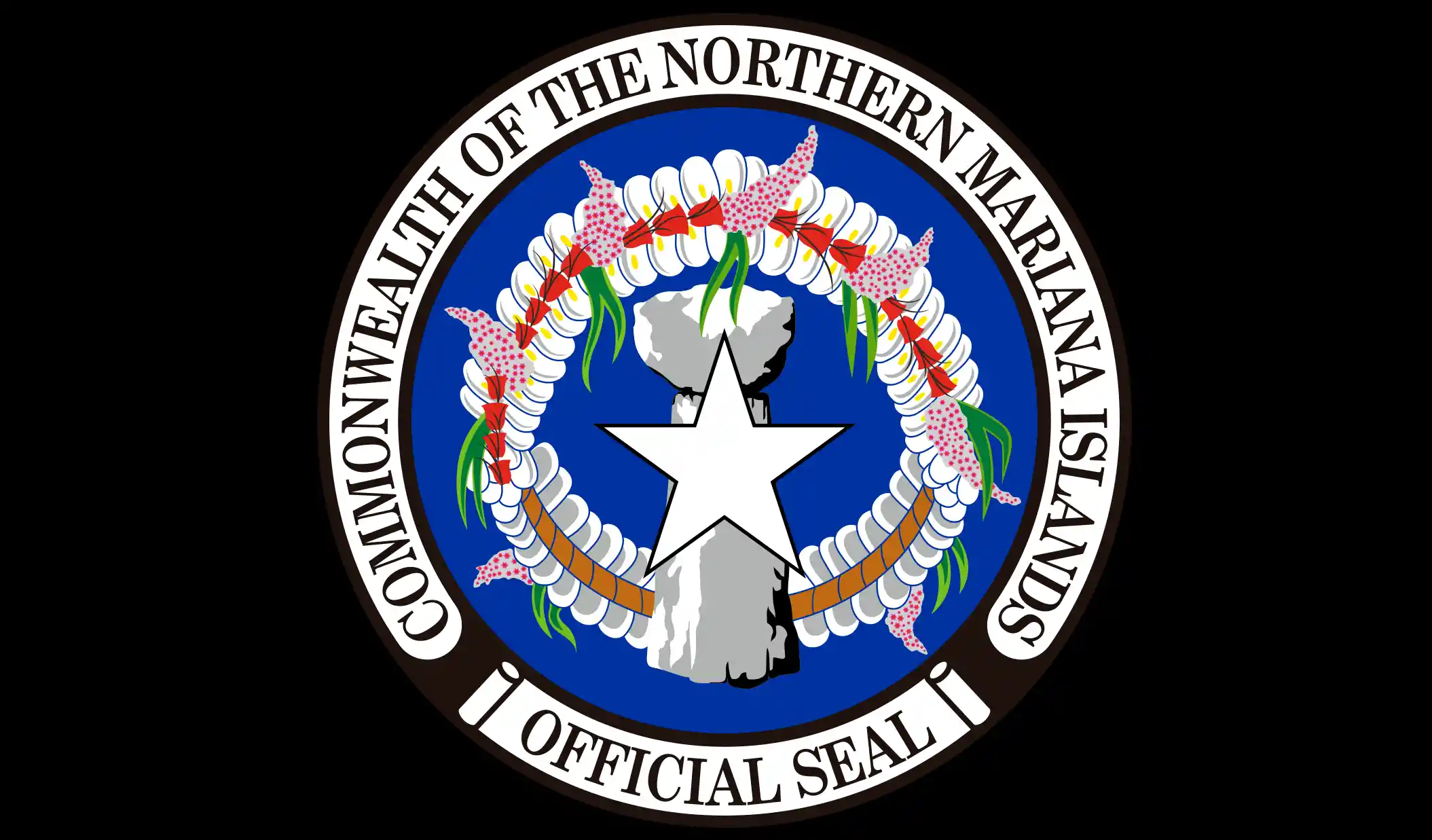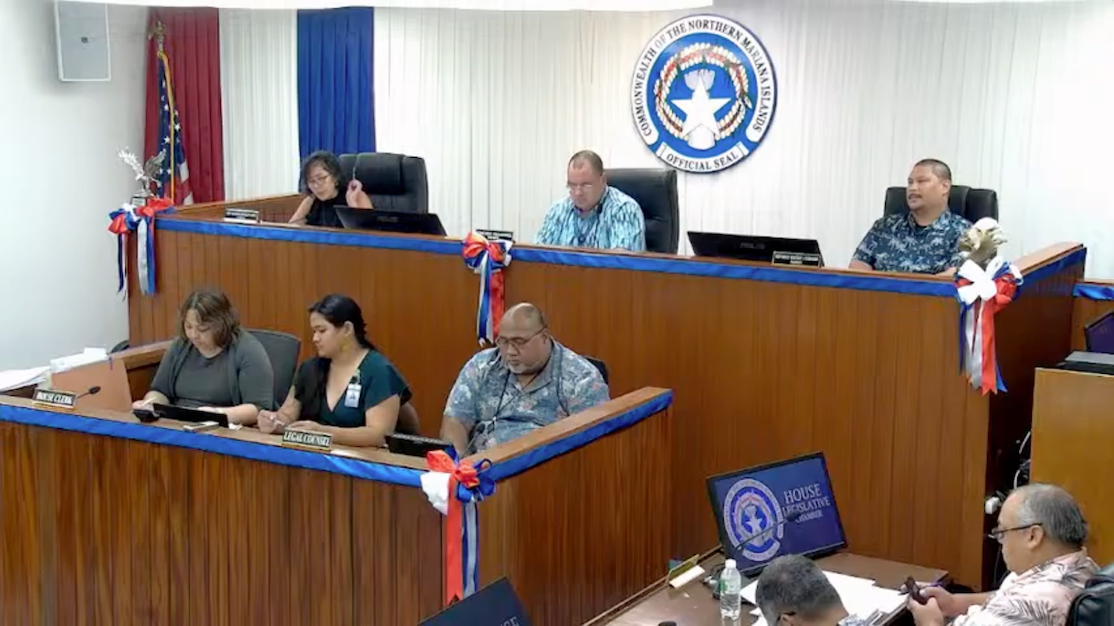KEY FACTS: The Northern Mariana Islands House of Representatives overrode Governor Arnold Palacios’s veto on May 16, 2025, passing a bill that authorizes Tinian to issue the Marianas US Dollar (MUSD), a U.S. dollar-pegged stablecoin backed by cash and U.S. Treasury bills on the eCash blockchain, potentially making Tinian the first U.S. public entity to launch a government-backed digital currency. The legislation, which also permits internet-based casino licensing, aims to diversify Tinian’s tourism-driven economy, despite concerns raised by the governor about its legality and enforcement. Partnering with Marianas Rai Corporation, Tinian could launch the MUSD by July 2025.
 Source: Seal of Northern Mariana Islands
Source: Seal of Northern Mariana Islands
Northern Mariana Islands House Passes Stablecoin Bill
The Northern Mariana Islands House of Representatives has voted to override a gubernatorial veto, passing a bill that authorizes the issuance of a U.S. dollar-pegged stablecoin called the Marianas US Dollar (MUSD). The decision, finalized on May 16, 2025, is a significant step toward making Tinian the first U.S. public entity to launch a government-backed stablecoin.
The legislation, which also permits the Tinian government to issue licenses for internet-based casinos, has stirred both excitement and controversy. It is an effort by the Commonwealth of the Northern Mariana Islands (CNMI), a U.S. territory north of Guam, to diversify its tourism-driven economy and embrace cutting-edge financial technology. However, the path to this legislative victory was fraught with challenges, including a veto by Governor Arnold Palacios, who raised concerns about the bill’s legality and enforcement mechanisms.
The stablecoin bill, initially introduced by Republican Senator Jude Hofschneider in February 2025, aimed to amend local Tinian law to facilitate the issuance of the MUSD and regulate online gaming. On March 12, a four-member Tinian delegation to the CNMI legislature unanimously approved the measure, sending it to Governor Palacios for consideration. However, on April 11, the governor vetoed the bill, citing several issues. In a letter to lawmakers, Palacios argued that the legislation “presents several legal issues and may be unconstitutional,” particularly because it sought to regulate activities, such as online gambling, that could not be restricted to Tinian. He also criticized the bill for lacking robust enforcement measures to prevent illegal gambling activities.
Undeterred, the
CNMI Senate revived the bill on May 9, voting 7-1 to override the governor’s veto with the required two-thirds majority. This set the stage for the House of Representatives, a 20-member body, to take up the measure. Representative Marissa Flores, a key figure in the debate, urged her colleagues to engage in “thoughtful deliberation” on the bill, which combined provisions for stablecoin issuance with internet gaming regulations. The House ultimately delivered the necessary two-thirds majority, cementing the legislation’s passage and overriding the governor’s objections.
The centerpiece of the legislation is the Marianas US Dollar (MUSD), a stablecoin designed to be fully backed by cash and U.S. Treasury bills held in reserve by the Tinian Municipal Treasury. Unlike volatile cryptocurrencies like Bitcoin, stablecoins are pegged to stable assets, such as the U.S. dollar, to maintain a consistent value, making them suitable for transactions and financial applications. The MUSD will operate on the eCash blockchain, a network that rebranded from Bitcoin Cash ABC in 2021 and traces its origins to a fork of Bitcoin Cash.
 Representative Marissa Flores (top left) had urged for “thoughtful deliberation” on the internet gaming and stablecoin bill. Source: YouTube
Representative Marissa Flores (top left) had urged for “thoughtful deliberation” on the internet gaming and stablecoin bill. Source: YouTube
The Tinian government has partnered with Marianas Rai Corporation, a local technology services firm, as the exclusive infrastructure provider for the MUSD. In April, Vin Armani, co-founder and technology chief of Marianas Rai, told Cointelegraph that the company was “in active discussions with potential partners” to launch the token despite the governor’s veto. Armani emphasized the firm’s readiness to “act quickly,” particularly as the U.S. Congress grapples with its stablecoin legislation.
If Tinian moves swiftly, it could launch the MUSD before July 2025, beating Wyoming, which is preparing to issue its state-backed stablecoin by then. With a population of just over 2,000 and an economy heavily reliant on tourism, Tinian’s foray into digital currency represents a high-stakes bet on innovation to boost its financial profile.
The CNMI’s legislative breakthrough follows heightened interest in stablecoins across the United States. Nationally, the Guiding and Establishing National Innovation for U.S. Stablecoins (GENIUS) Act, which seeks to create a federal framework for stablecoin regulation, has faced significant hurdles in the U.S. Senate. On May 8, 2025, the GENIUS Act failed to secure the 60 votes needed to advance, with Democrats citing concerns over potential conflicts of interest involving President Donald Trump’s crypto ventures, including his family’s World Liberty Financial platform and its USD1 stablecoin.
The collapse of the GENIUS Act has left the U.S. without a cohesive federal approach to stablecoin oversight, creating a patchwork of state and territorial regulations. Tinian’s initiative, therefore, stands out as a bold experiment in local governance of digital assets. The MUSD could serve as a model for other jurisdictions, demonstrating how small governments can leverage blockchain technology to enhance economic resilience. However, it also raises questions about regulatory consistency and the ability of a small municipality to manage the complexities of a digital currency.
The passage of the stablecoin bill represents a historic opportunity to redefine the economic future of Tinian. The island, part of the CNMI’s four municipalities, has long relied on tourism and limited industries to sustain its small population. Tinian, embracing the MUSD, aims to position itself as a forward-thinking player in the global financial ecosystem, potentially attracting investment and partnerships in the blockchain space.
The Tinian government's partnership with Marianas Rai Corporation and the use of the eCash blockchain will provide a foundation for the project, but success will depend on robust execution and public trust in the currency’s stability. Nationally, the CNMI’s move could pressure federal lawmakers to revisit stablecoin legislation, particularly as states and territories take the lead in the absence of a unified framework.
Information Sources:
If you found the article interesting or helpful, please hit the upvote button and share for visibility to other hive friends to see. More importantly, drop a comment below. Thank you!
This post was created via INLEO. What is INLEO?
INLEO's mission is to build a sustainable creator economy that is centered around digital ownership, tokenization, and communities. It's built on Hive, with linkages to BSC, ETH, and Polygon blockchains. The flagship application,
Inleo.io, allows users and creators to engage & share micro and long-form content on the Hive blockchain while earning cryptocurrency rewards.
Let's Connect
Discord: uyobong#5966


